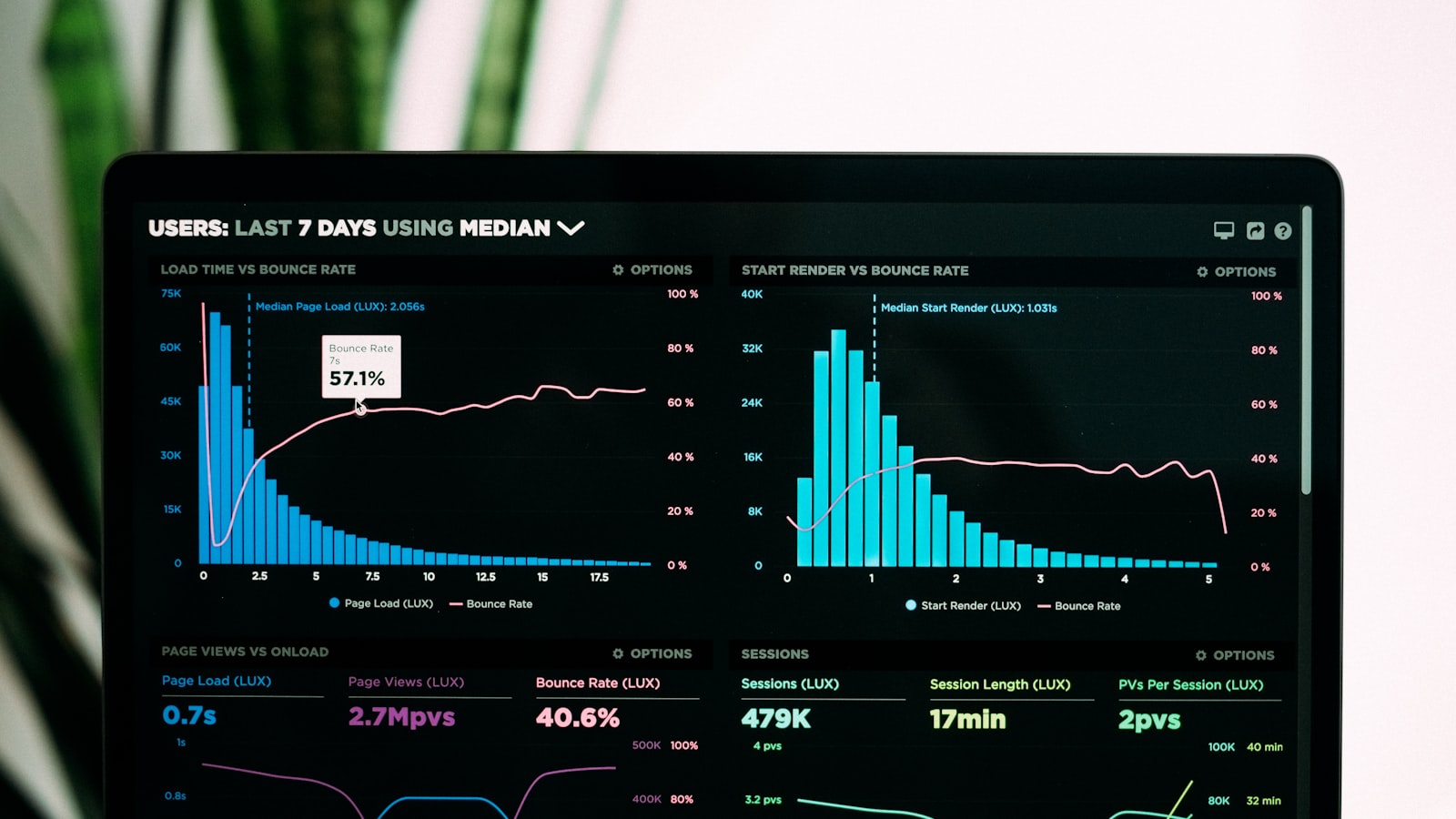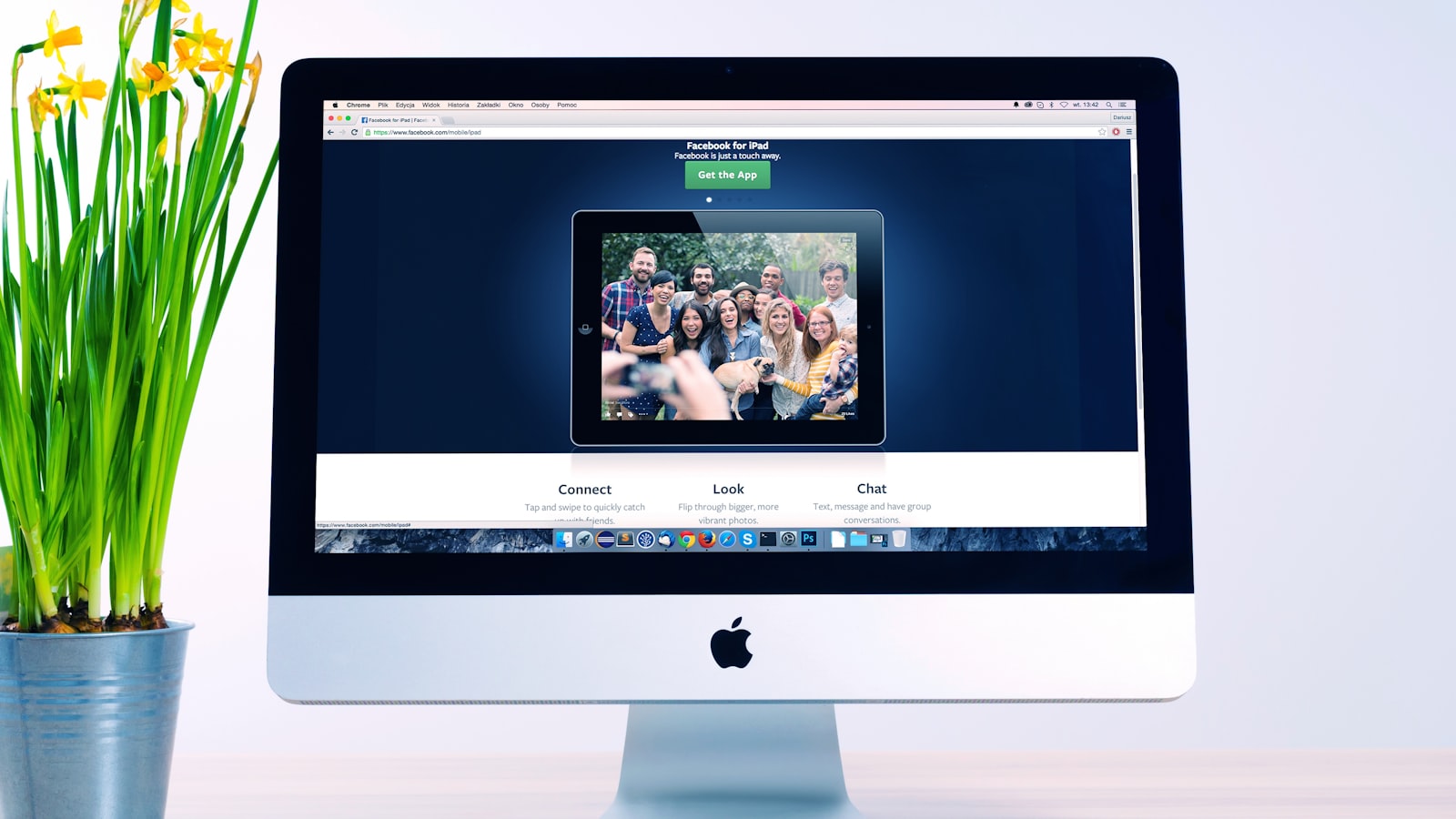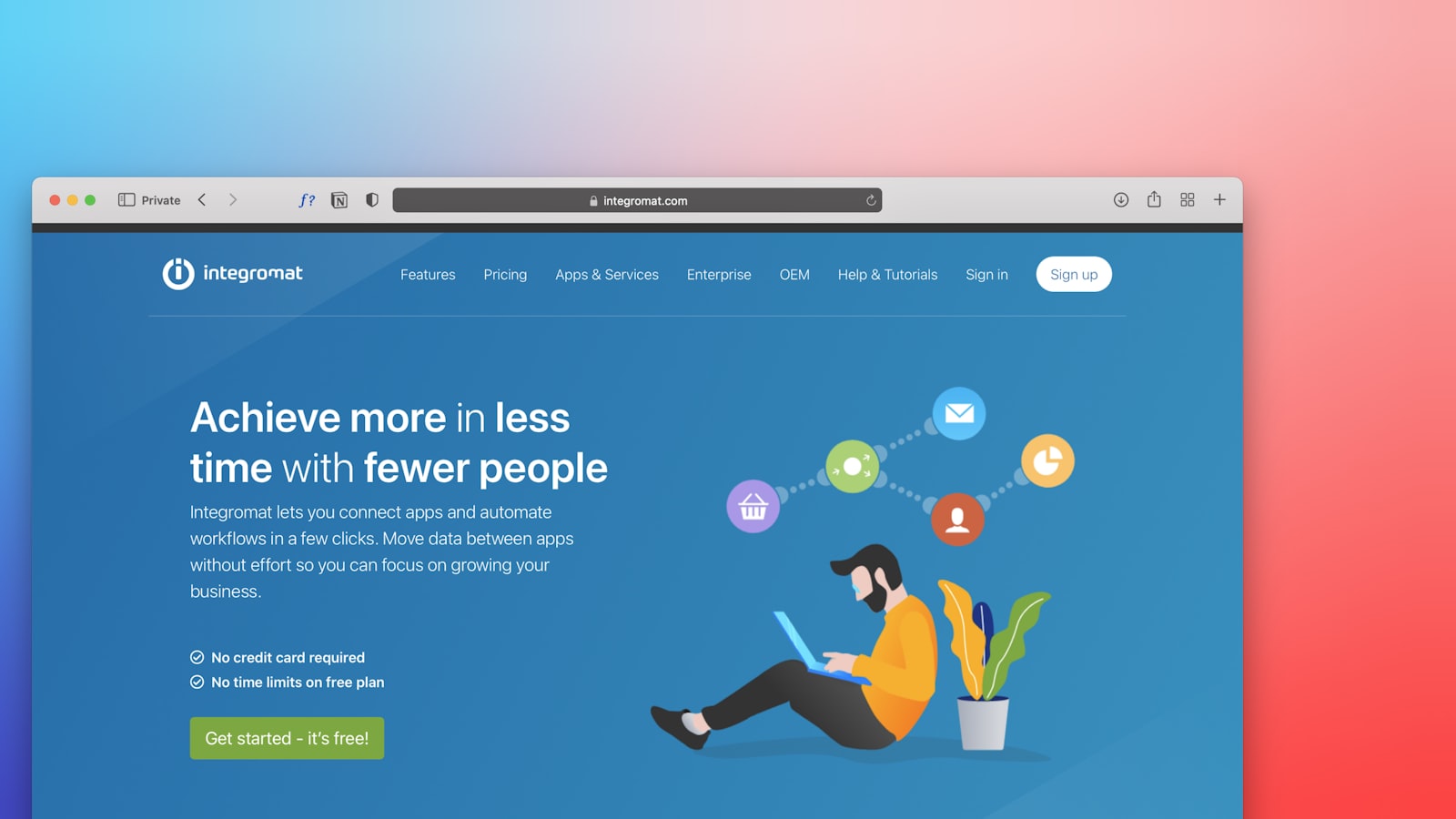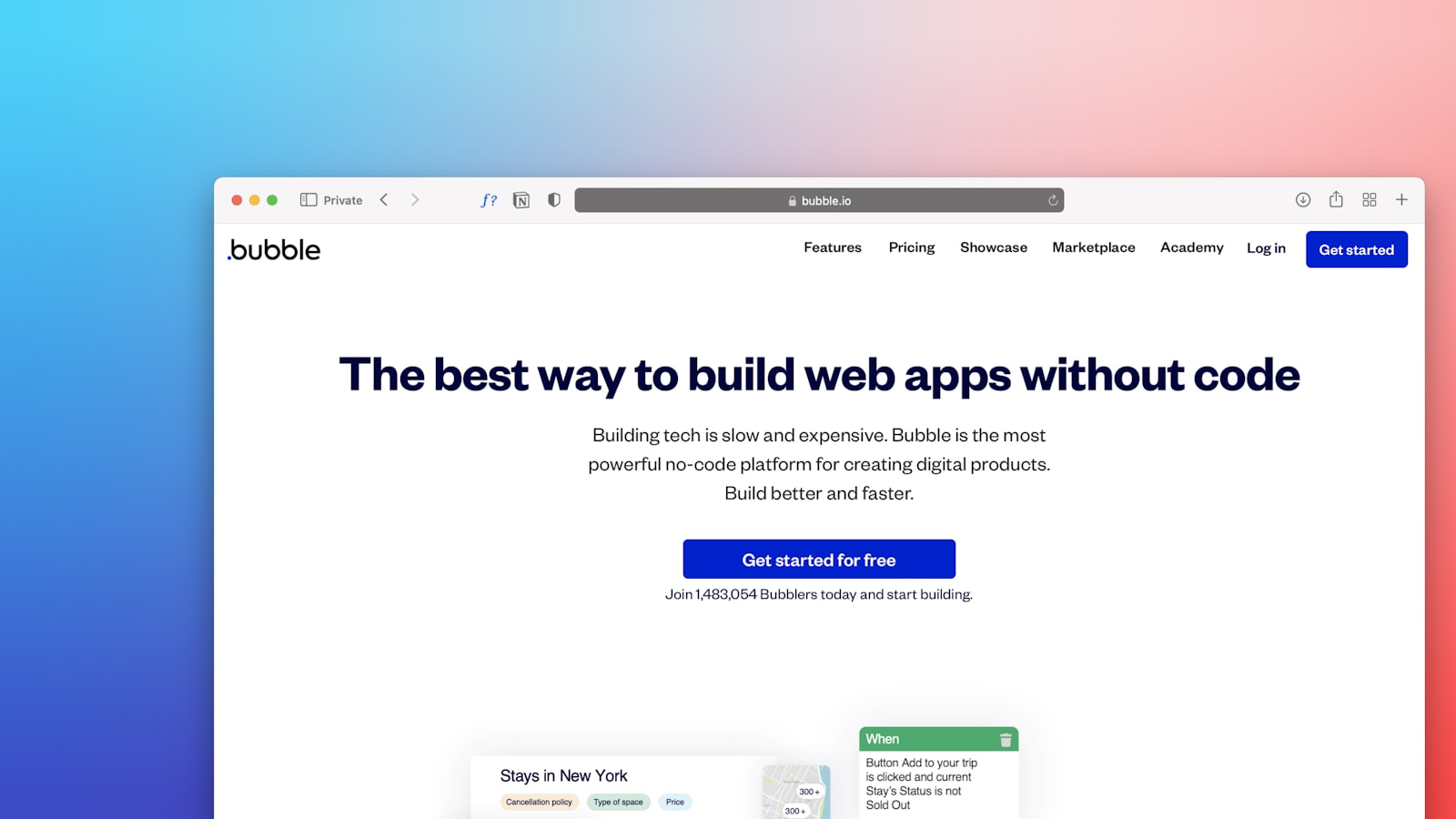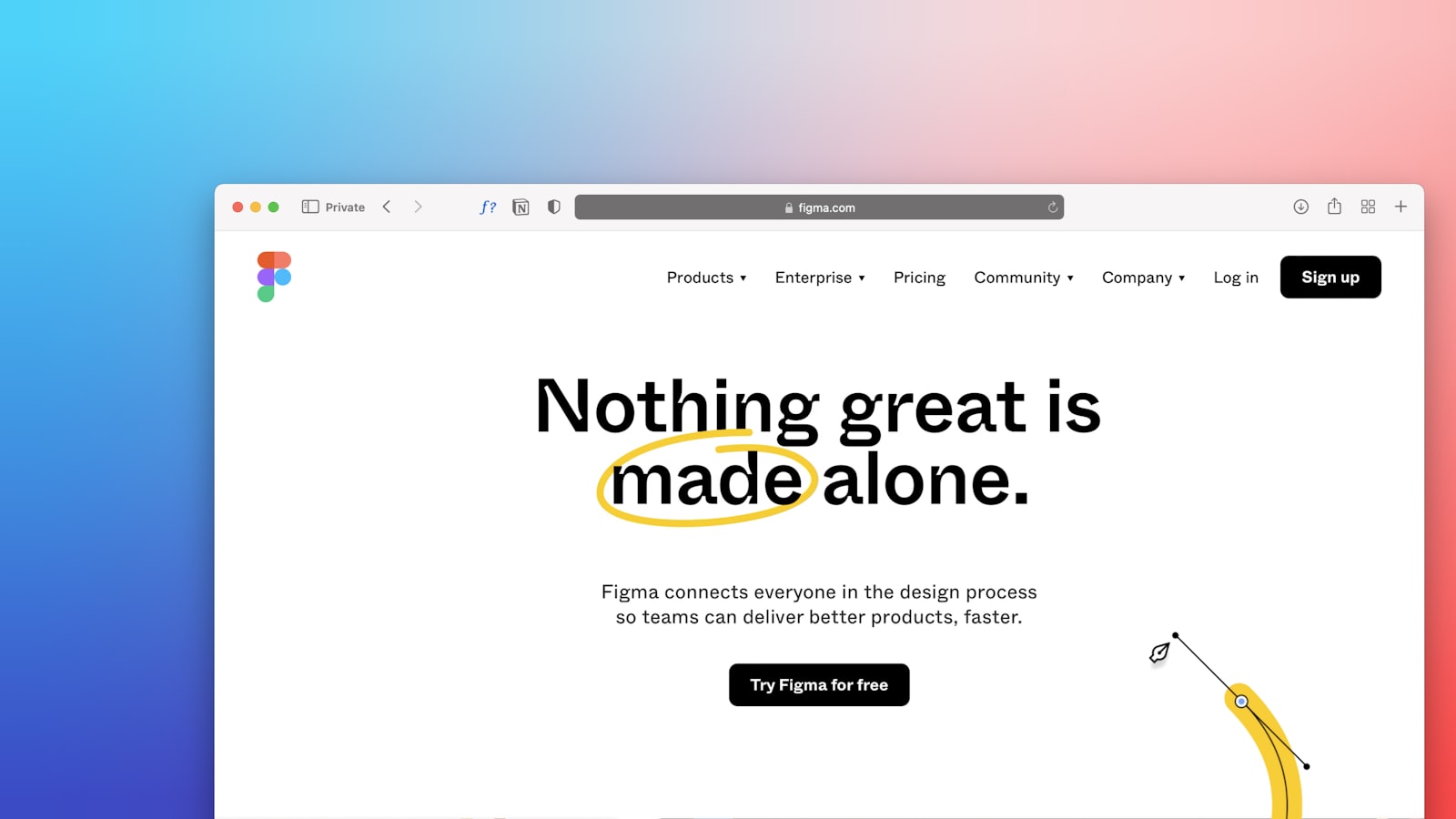How to Choose the Right SaaS Course for Your Learning Goals
How to Choose the Right SaaS Course for Your Learning Goals
How to Choose the Right SaaS Course for Your Learning Goals
Discover how to choose the right SaaS course for your learning goals. Get tips on selecting the best program to boost your skills and career.
Discover how to choose the right SaaS course for your learning goals. Get tips on selecting the best program to boost your skills and career.



How to Choose the Right SaaS Course for Your Learning Goals
Ready to level up your SaaS skills but drowning in a sea of online courses? We get it. The struggle is real. But don't worry, SaaS Sage is here to guide you through the chaos with a practical, no-nonsense approach. Let's find the perfect SaaS course that fits your unique learning goals.
Understanding Your Learning Goals
First things first, let's get clear on what you want to achieve. Knowing your learning goals is like having a GPS for your SaaS journey—without it, you’re just wandering aimlessly.
Identifying Your Current Skill Level
Are you a SaaS rookie, intermediate user, or a seasoned professional? Be honest with yourself. Identifying your current skill level will help you find a course that's challenging, but not overwhelming. Here’s a quick self-check:
Beginner: You’re not familiar with SaaS and need to understand the basics.
Intermediate: You’ve got some experience and want to deepen your knowledge.
Advanced: You’re looking for specialized skills or advanced techniques.
Defining Your Career Objectives
What’s your endgame? Are you aiming for a promotion, a career switch, or mastering a specific tool? Defining your career objectives will narrow down your choices and ensure the course aligns with your professional goals.
Determining the Specific Skills You Want to Acquire
Be specific about the skills you want to gain. Whether it’s mastering customer relationship management (CRM) software, improving data analytics capabilities, or learning about the latest SaaS trends, pinpointing your needs will help you choose the right course content.
Types of SaaS Courses Available
Technical Skills Courses
Programming Languages (e.g., Python, JavaScript)
Learning programming languages like Python and JavaScript is essential for anyone looking to dive into software development. Python is known for its simplicity and readability, making it a great starting point for beginners. JavaScript, on the other hand, is crucial for web development, enabling you to create dynamic and interactive web pages.
Cloud Computing and Infrastructure (e.g., AWS, Azure)
Cloud computing courses, such as Azure or AWS, teach you how to manage and deploy applications in the cloud. These skills are increasingly in demand as businesses shift their operations online. Understanding cloud infrastructure can open doors to roles in cloud architecture and administration.
Web Development (e.g., Front-End, Back-End)
Web development courses cover both front-end and back-end technologies. Front-end courses often include HTML, CSS, and JavaScript frameworks like React. Back-end courses might focus on server-side languages like Node.js or Python's Django framework. Mastering both can make you a versatile full-stack developer.
Business and Management Courses
Product Management
Product management courses teach you how to oversee the development and lifecycle of a product. You'll learn about market research, product strategy, and working with cross-functional teams to bring a product to market successfully.
Marketing and Customer Acquisition
Courses in marketing and customer acquisition cover strategies to attract and retain customers. Topics may include digital marketing, SEO, content marketing, and social media strategies. For more on boosting customer engagement, check out these 10 SaaS Training Techniques to Boost Customer Engagement and Retention.
Sales and Customer Success
Sales and customer success courses focus on delivering exceptional customer experiences. You'll learn about sales funnels, customer relationship management (CRM) tools, and strategies to maintain long-term customer relationships.
Specialized Courses
Data Science and Big Data
Data science courses teach you how to analyze and interpret complex data sets. You'll learn about machine learning, statistical analysis, and big data tools like Hadoop and Spark. These skills are crucial for data analysis and business intelligence roles.
DevOps and Software Engineering
DevOps courses cover the practices and tools needed to automate and streamline software development and deployment. Topics include continuous integration/continuous deployment (CI/CD), containerization with Docker, and orchestration with Kubernetes. For more insights, visit Training Sessions on Programmatic SEO for SaaS Teams.
UX/UI Design
UX/UI design courses focus on creating user-friendly and visually appealing interfaces. You'll learn about user research, wireframing, prototyping, and design tools like Sketch and Figma. These skills are vital for roles in web and app design.

Evaluating Course Content and Structure

Course Format (Live vs. Pre-recorded)
When choosing a SaaS course, one of the first decisions you'll need to make is whether you prefer live sessions or pre-recorded content. Live courses offer real-time interaction with instructors and peers, which can be invaluable for immediate feedback and networking. On the other hand, pre-recorded courses provide flexibility, allowing you to learn at your own pace.
Duration and Time Commitment
Another crucial factor is the course duration and the time commitment required. Some courses are short and intensive, designed to be completed in a few weeks, while others may span several months. Make sure to evaluate how much time you can realistically handle in your schedule.
Hands-On Projects and Practical Applications
The best SaaS courses include hands-on projects and practical applications. These elements help you apply what you've learned in real-world scenarios, making the knowledge stick. Look for courses that offer assignments, case studies, or labs.
Certification and Accreditation
Finally, consider whether the course offers certification or accreditation. A certificate can be a valuable addition to your resume, demonstrating your expertise to potential employers. Accredited courses are often recognized by industry bodies, adding an extra layer of credibility.
Assessing Course Providers

Reputation and Reviews
When choosing a SaaS course, one of the most important factors is reputation and reviews. Look for courses with positive feedback from past students. Websites like Trustpilot and G2 are great places to start. But remember, not all reviews are created equal. Look for detailed feedback that discusses the course's content, delivery, and overall impact on the learner's career.
Instructor Expertise
The quality of a course often hinges on the expertise of its instructor. Check the instructor's background, qualifications, and industry experience. Are they a seasoned professional or a newbie? Do they have a track record of success in the field? A quick LinkedIn search can reveal a lot about their professional journey and credibility.
Community and Networking Opportunities
A good SaaS course should offer more than just lectures. Look for courses that provide access to a community of learners and professionals. Networking opportunities can be invaluable for career growth. Forums, Slack groups, and live Q&A sessions can offer support and foster connections that last beyond the course.
Post-Course Support and Resources
The learning shouldn't stop when the course ends. Assess what kind of post-course support and resources are available. Does the provider offer continued access to course materials? Are there opportunities for further learning and development? Some providers even offer career services to help you land your next job.
Budgeting and Pricing

Free vs. Paid Courses
When choosing a SaaS course, one of the first decisions you'll face is whether to go for a free or paid option. Free courses can be a great starting point, especially if you're just dipping your toes into a new subject. Platforms like Coursera and Udemy offer various free courses that can provide a solid foundation.
However, paid courses often come with added benefits such as in-depth content, hands-on projects, and direct access to instructors. For example, a paid course might include comprehensive modules on creating a scalable course, which could be invaluable for those looking to implement such programs in their organizations.
Subscription Models vs. One-Time Payment
Another important consideration is the payment structure. Subscription models, such as those offered by LinkedIn Learning or Pluralsight, provide ongoing access to a wide range of courses for a monthly or annual fee. This can be particularly useful if you plan to take multiple courses over time.
On the other hand, one-time payment options are often available for individual courses. This can be more cost-effective if you have a specific course in mind, like a specialized programmatic SEO training for eCommerce beginners.
Additional Costs (Materials, Software, etc.)
Don't forget to factor in additional costs that might come with your chosen course. Some courses require specific software or materials that aren't included in the initial price. For instance, a course on cloud computing might necessitate a subscription to AWS or Azure services.
Making the Final Decision
Comparing Multiple Courses
Choosing the right SaaS course can feel like picking the perfect avocado—tricky but worth it. Start by listing your top contenders and comparing them based on:
Content depth and breadth
Instructor qualifications
Student reviews and ratings
Cost and value for money
Aligning with Your Learning Style
Are you a visual learner or do you prefer hands-on practice? Make sure the course format aligns with how you learn best. Options include:
Video tutorials
Interactive exercises
Live webinars
Seeking Recommendations and Advice
Sometimes, the best advice comes from those who've been there, done that. Ask colleagues, mentors, or even online communities for their recommendations. You can also check out reviews and testimonials on platforms like LinkedIn or specialized forums.
Trial Periods and Money-Back Guarantees
Many SaaS courses offer trial periods or money-back guarantees. Take advantage of these offers to test the waters before fully committing. This way, you can ensure the course meets your expectations without any financial risk.
How to Choose the Right SaaS Course for Your Learning Goals
Ready to level up your SaaS skills but drowning in a sea of online courses? We get it. The struggle is real. But don't worry, SaaS Sage is here to guide you through the chaos with a practical, no-nonsense approach. Let's find the perfect SaaS course that fits your unique learning goals.
Understanding Your Learning Goals
First things first, let's get clear on what you want to achieve. Knowing your learning goals is like having a GPS for your SaaS journey—without it, you’re just wandering aimlessly.
Identifying Your Current Skill Level
Are you a SaaS rookie, intermediate user, or a seasoned professional? Be honest with yourself. Identifying your current skill level will help you find a course that's challenging, but not overwhelming. Here’s a quick self-check:
Beginner: You’re not familiar with SaaS and need to understand the basics.
Intermediate: You’ve got some experience and want to deepen your knowledge.
Advanced: You’re looking for specialized skills or advanced techniques.
Defining Your Career Objectives
What’s your endgame? Are you aiming for a promotion, a career switch, or mastering a specific tool? Defining your career objectives will narrow down your choices and ensure the course aligns with your professional goals.
Determining the Specific Skills You Want to Acquire
Be specific about the skills you want to gain. Whether it’s mastering customer relationship management (CRM) software, improving data analytics capabilities, or learning about the latest SaaS trends, pinpointing your needs will help you choose the right course content.
Types of SaaS Courses Available
Technical Skills Courses
Programming Languages (e.g., Python, JavaScript)
Learning programming languages like Python and JavaScript is essential for anyone looking to dive into software development. Python is known for its simplicity and readability, making it a great starting point for beginners. JavaScript, on the other hand, is crucial for web development, enabling you to create dynamic and interactive web pages.
Cloud Computing and Infrastructure (e.g., AWS, Azure)
Cloud computing courses, such as Azure or AWS, teach you how to manage and deploy applications in the cloud. These skills are increasingly in demand as businesses shift their operations online. Understanding cloud infrastructure can open doors to roles in cloud architecture and administration.
Web Development (e.g., Front-End, Back-End)
Web development courses cover both front-end and back-end technologies. Front-end courses often include HTML, CSS, and JavaScript frameworks like React. Back-end courses might focus on server-side languages like Node.js or Python's Django framework. Mastering both can make you a versatile full-stack developer.
Business and Management Courses
Product Management
Product management courses teach you how to oversee the development and lifecycle of a product. You'll learn about market research, product strategy, and working with cross-functional teams to bring a product to market successfully.
Marketing and Customer Acquisition
Courses in marketing and customer acquisition cover strategies to attract and retain customers. Topics may include digital marketing, SEO, content marketing, and social media strategies. For more on boosting customer engagement, check out these 10 SaaS Training Techniques to Boost Customer Engagement and Retention.
Sales and Customer Success
Sales and customer success courses focus on delivering exceptional customer experiences. You'll learn about sales funnels, customer relationship management (CRM) tools, and strategies to maintain long-term customer relationships.
Specialized Courses
Data Science and Big Data
Data science courses teach you how to analyze and interpret complex data sets. You'll learn about machine learning, statistical analysis, and big data tools like Hadoop and Spark. These skills are crucial for data analysis and business intelligence roles.
DevOps and Software Engineering
DevOps courses cover the practices and tools needed to automate and streamline software development and deployment. Topics include continuous integration/continuous deployment (CI/CD), containerization with Docker, and orchestration with Kubernetes. For more insights, visit Training Sessions on Programmatic SEO for SaaS Teams.
UX/UI Design
UX/UI design courses focus on creating user-friendly and visually appealing interfaces. You'll learn about user research, wireframing, prototyping, and design tools like Sketch and Figma. These skills are vital for roles in web and app design.

Evaluating Course Content and Structure

Course Format (Live vs. Pre-recorded)
When choosing a SaaS course, one of the first decisions you'll need to make is whether you prefer live sessions or pre-recorded content. Live courses offer real-time interaction with instructors and peers, which can be invaluable for immediate feedback and networking. On the other hand, pre-recorded courses provide flexibility, allowing you to learn at your own pace.
Duration and Time Commitment
Another crucial factor is the course duration and the time commitment required. Some courses are short and intensive, designed to be completed in a few weeks, while others may span several months. Make sure to evaluate how much time you can realistically handle in your schedule.
Hands-On Projects and Practical Applications
The best SaaS courses include hands-on projects and practical applications. These elements help you apply what you've learned in real-world scenarios, making the knowledge stick. Look for courses that offer assignments, case studies, or labs.
Certification and Accreditation
Finally, consider whether the course offers certification or accreditation. A certificate can be a valuable addition to your resume, demonstrating your expertise to potential employers. Accredited courses are often recognized by industry bodies, adding an extra layer of credibility.
Assessing Course Providers

Reputation and Reviews
When choosing a SaaS course, one of the most important factors is reputation and reviews. Look for courses with positive feedback from past students. Websites like Trustpilot and G2 are great places to start. But remember, not all reviews are created equal. Look for detailed feedback that discusses the course's content, delivery, and overall impact on the learner's career.
Instructor Expertise
The quality of a course often hinges on the expertise of its instructor. Check the instructor's background, qualifications, and industry experience. Are they a seasoned professional or a newbie? Do they have a track record of success in the field? A quick LinkedIn search can reveal a lot about their professional journey and credibility.
Community and Networking Opportunities
A good SaaS course should offer more than just lectures. Look for courses that provide access to a community of learners and professionals. Networking opportunities can be invaluable for career growth. Forums, Slack groups, and live Q&A sessions can offer support and foster connections that last beyond the course.
Post-Course Support and Resources
The learning shouldn't stop when the course ends. Assess what kind of post-course support and resources are available. Does the provider offer continued access to course materials? Are there opportunities for further learning and development? Some providers even offer career services to help you land your next job.
Budgeting and Pricing

Free vs. Paid Courses
When choosing a SaaS course, one of the first decisions you'll face is whether to go for a free or paid option. Free courses can be a great starting point, especially if you're just dipping your toes into a new subject. Platforms like Coursera and Udemy offer various free courses that can provide a solid foundation.
However, paid courses often come with added benefits such as in-depth content, hands-on projects, and direct access to instructors. For example, a paid course might include comprehensive modules on creating a scalable course, which could be invaluable for those looking to implement such programs in their organizations.
Subscription Models vs. One-Time Payment
Another important consideration is the payment structure. Subscription models, such as those offered by LinkedIn Learning or Pluralsight, provide ongoing access to a wide range of courses for a monthly or annual fee. This can be particularly useful if you plan to take multiple courses over time.
On the other hand, one-time payment options are often available for individual courses. This can be more cost-effective if you have a specific course in mind, like a specialized programmatic SEO training for eCommerce beginners.
Additional Costs (Materials, Software, etc.)
Don't forget to factor in additional costs that might come with your chosen course. Some courses require specific software or materials that aren't included in the initial price. For instance, a course on cloud computing might necessitate a subscription to AWS or Azure services.
Making the Final Decision
Comparing Multiple Courses
Choosing the right SaaS course can feel like picking the perfect avocado—tricky but worth it. Start by listing your top contenders and comparing them based on:
Content depth and breadth
Instructor qualifications
Student reviews and ratings
Cost and value for money
Aligning with Your Learning Style
Are you a visual learner or do you prefer hands-on practice? Make sure the course format aligns with how you learn best. Options include:
Video tutorials
Interactive exercises
Live webinars
Seeking Recommendations and Advice
Sometimes, the best advice comes from those who've been there, done that. Ask colleagues, mentors, or even online communities for their recommendations. You can also check out reviews and testimonials on platforms like LinkedIn or specialized forums.
Trial Periods and Money-Back Guarantees
Many SaaS courses offer trial periods or money-back guarantees. Take advantage of these offers to test the waters before fully committing. This way, you can ensure the course meets your expectations without any financial risk.
How to Choose the Right SaaS Course for Your Learning Goals
Ready to level up your SaaS skills but drowning in a sea of online courses? We get it. The struggle is real. But don't worry, SaaS Sage is here to guide you through the chaos with a practical, no-nonsense approach. Let's find the perfect SaaS course that fits your unique learning goals.
Understanding Your Learning Goals
First things first, let's get clear on what you want to achieve. Knowing your learning goals is like having a GPS for your SaaS journey—without it, you’re just wandering aimlessly.
Identifying Your Current Skill Level
Are you a SaaS rookie, intermediate user, or a seasoned professional? Be honest with yourself. Identifying your current skill level will help you find a course that's challenging, but not overwhelming. Here’s a quick self-check:
Beginner: You’re not familiar with SaaS and need to understand the basics.
Intermediate: You’ve got some experience and want to deepen your knowledge.
Advanced: You’re looking for specialized skills or advanced techniques.
Defining Your Career Objectives
What’s your endgame? Are you aiming for a promotion, a career switch, or mastering a specific tool? Defining your career objectives will narrow down your choices and ensure the course aligns with your professional goals.
Determining the Specific Skills You Want to Acquire
Be specific about the skills you want to gain. Whether it’s mastering customer relationship management (CRM) software, improving data analytics capabilities, or learning about the latest SaaS trends, pinpointing your needs will help you choose the right course content.
Types of SaaS Courses Available
Technical Skills Courses
Programming Languages (e.g., Python, JavaScript)
Learning programming languages like Python and JavaScript is essential for anyone looking to dive into software development. Python is known for its simplicity and readability, making it a great starting point for beginners. JavaScript, on the other hand, is crucial for web development, enabling you to create dynamic and interactive web pages.
Cloud Computing and Infrastructure (e.g., AWS, Azure)
Cloud computing courses, such as Azure or AWS, teach you how to manage and deploy applications in the cloud. These skills are increasingly in demand as businesses shift their operations online. Understanding cloud infrastructure can open doors to roles in cloud architecture and administration.
Web Development (e.g., Front-End, Back-End)
Web development courses cover both front-end and back-end technologies. Front-end courses often include HTML, CSS, and JavaScript frameworks like React. Back-end courses might focus on server-side languages like Node.js or Python's Django framework. Mastering both can make you a versatile full-stack developer.
Business and Management Courses
Product Management
Product management courses teach you how to oversee the development and lifecycle of a product. You'll learn about market research, product strategy, and working with cross-functional teams to bring a product to market successfully.
Marketing and Customer Acquisition
Courses in marketing and customer acquisition cover strategies to attract and retain customers. Topics may include digital marketing, SEO, content marketing, and social media strategies. For more on boosting customer engagement, check out these 10 SaaS Training Techniques to Boost Customer Engagement and Retention.
Sales and Customer Success
Sales and customer success courses focus on delivering exceptional customer experiences. You'll learn about sales funnels, customer relationship management (CRM) tools, and strategies to maintain long-term customer relationships.
Specialized Courses
Data Science and Big Data
Data science courses teach you how to analyze and interpret complex data sets. You'll learn about machine learning, statistical analysis, and big data tools like Hadoop and Spark. These skills are crucial for data analysis and business intelligence roles.
DevOps and Software Engineering
DevOps courses cover the practices and tools needed to automate and streamline software development and deployment. Topics include continuous integration/continuous deployment (CI/CD), containerization with Docker, and orchestration with Kubernetes. For more insights, visit Training Sessions on Programmatic SEO for SaaS Teams.
UX/UI Design
UX/UI design courses focus on creating user-friendly and visually appealing interfaces. You'll learn about user research, wireframing, prototyping, and design tools like Sketch and Figma. These skills are vital for roles in web and app design.

Evaluating Course Content and Structure

Course Format (Live vs. Pre-recorded)
When choosing a SaaS course, one of the first decisions you'll need to make is whether you prefer live sessions or pre-recorded content. Live courses offer real-time interaction with instructors and peers, which can be invaluable for immediate feedback and networking. On the other hand, pre-recorded courses provide flexibility, allowing you to learn at your own pace.
Duration and Time Commitment
Another crucial factor is the course duration and the time commitment required. Some courses are short and intensive, designed to be completed in a few weeks, while others may span several months. Make sure to evaluate how much time you can realistically handle in your schedule.
Hands-On Projects and Practical Applications
The best SaaS courses include hands-on projects and practical applications. These elements help you apply what you've learned in real-world scenarios, making the knowledge stick. Look for courses that offer assignments, case studies, or labs.
Certification and Accreditation
Finally, consider whether the course offers certification or accreditation. A certificate can be a valuable addition to your resume, demonstrating your expertise to potential employers. Accredited courses are often recognized by industry bodies, adding an extra layer of credibility.
Assessing Course Providers

Reputation and Reviews
When choosing a SaaS course, one of the most important factors is reputation and reviews. Look for courses with positive feedback from past students. Websites like Trustpilot and G2 are great places to start. But remember, not all reviews are created equal. Look for detailed feedback that discusses the course's content, delivery, and overall impact on the learner's career.
Instructor Expertise
The quality of a course often hinges on the expertise of its instructor. Check the instructor's background, qualifications, and industry experience. Are they a seasoned professional or a newbie? Do they have a track record of success in the field? A quick LinkedIn search can reveal a lot about their professional journey and credibility.
Community and Networking Opportunities
A good SaaS course should offer more than just lectures. Look for courses that provide access to a community of learners and professionals. Networking opportunities can be invaluable for career growth. Forums, Slack groups, and live Q&A sessions can offer support and foster connections that last beyond the course.
Post-Course Support and Resources
The learning shouldn't stop when the course ends. Assess what kind of post-course support and resources are available. Does the provider offer continued access to course materials? Are there opportunities for further learning and development? Some providers even offer career services to help you land your next job.
Budgeting and Pricing

Free vs. Paid Courses
When choosing a SaaS course, one of the first decisions you'll face is whether to go for a free or paid option. Free courses can be a great starting point, especially if you're just dipping your toes into a new subject. Platforms like Coursera and Udemy offer various free courses that can provide a solid foundation.
However, paid courses often come with added benefits such as in-depth content, hands-on projects, and direct access to instructors. For example, a paid course might include comprehensive modules on creating a scalable course, which could be invaluable for those looking to implement such programs in their organizations.
Subscription Models vs. One-Time Payment
Another important consideration is the payment structure. Subscription models, such as those offered by LinkedIn Learning or Pluralsight, provide ongoing access to a wide range of courses for a monthly or annual fee. This can be particularly useful if you plan to take multiple courses over time.
On the other hand, one-time payment options are often available for individual courses. This can be more cost-effective if you have a specific course in mind, like a specialized programmatic SEO training for eCommerce beginners.
Additional Costs (Materials, Software, etc.)
Don't forget to factor in additional costs that might come with your chosen course. Some courses require specific software or materials that aren't included in the initial price. For instance, a course on cloud computing might necessitate a subscription to AWS or Azure services.
Making the Final Decision
Comparing Multiple Courses
Choosing the right SaaS course can feel like picking the perfect avocado—tricky but worth it. Start by listing your top contenders and comparing them based on:
Content depth and breadth
Instructor qualifications
Student reviews and ratings
Cost and value for money
Aligning with Your Learning Style
Are you a visual learner or do you prefer hands-on practice? Make sure the course format aligns with how you learn best. Options include:
Video tutorials
Interactive exercises
Live webinars
Seeking Recommendations and Advice
Sometimes, the best advice comes from those who've been there, done that. Ask colleagues, mentors, or even online communities for their recommendations. You can also check out reviews and testimonials on platforms like LinkedIn or specialized forums.
Trial Periods and Money-Back Guarantees
Many SaaS courses offer trial periods or money-back guarantees. Take advantage of these offers to test the waters before fully committing. This way, you can ensure the course meets your expectations without any financial risk.
Need help with SEO?
Need help with SEO?
Need help with SEO?
Join our 5-day free course on how to use AI to get more traffic to your website!
Explode your organic traffic and generate red-hot leads without spending a fortune on ads
Claim the top spot on search rankings for the most lucrative keywords in your industry
Cement your position as the undisputed authority in your niche, fostering unshakable trust and loyalty
Skyrocket your conversion rates and revenue with irresistible, customer-centric content
Conquer untapped markets and expand your reach by seizing hidden keyword opportunities
Liberate your time and resources from tedious content tasks, so you can focus on scaling your business
Gain laser-sharp insights into your ideal customers' minds, enabling you to create products and content they can't resist
Harness the power of data-driven decision-making to optimize your marketing for maximum impact
Achieve unstoppable, long-term organic growth without being held hostage by algorithm updates or ad costs
Stay light-years ahead of the competition by leveraging cutting-edge AI to adapt to any market shift or customer trend
Explode your organic traffic and generate red-hot leads without spending a fortune on ads
Claim the top spot on search rankings for the most lucrative keywords in your industry
Cement your position as the undisputed authority in your niche, fostering unshakable trust and loyalty
Skyrocket your conversion rates and revenue with irresistible, customer-centric content
Conquer untapped markets and expand your reach by seizing hidden keyword opportunities
Liberate your time and resources from tedious content tasks, so you can focus on scaling your business
Gain laser-sharp insights into your ideal customers' minds, enabling you to create products and content they can't resist
Harness the power of data-driven decision-making to optimize your marketing for maximum impact
Achieve unstoppable, long-term organic growth without being held hostage by algorithm updates or ad costs
Stay light-years ahead of the competition by leveraging cutting-edge AI to adapt to any market shift or customer trend
Explode your organic traffic and generate red-hot leads without spending a fortune on ads
Claim the top spot on search rankings for the most lucrative keywords in your industry
Cement your position as the undisputed authority in your niche, fostering unshakable trust and loyalty
Skyrocket your conversion rates and revenue with irresistible, customer-centric content
Conquer untapped markets and expand your reach by seizing hidden keyword opportunities
Liberate your time and resources from tedious content tasks, so you can focus on scaling your business
Gain laser-sharp insights into your ideal customers' minds, enabling you to create products and content they can't resist
Harness the power of data-driven decision-making to optimize your marketing for maximum impact
Achieve unstoppable, long-term organic growth without being held hostage by algorithm updates or ad costs
Stay light-years ahead of the competition by leveraging cutting-edge AI to adapt to any market shift or customer trend
